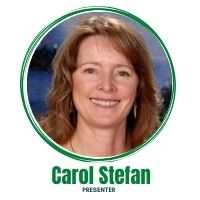SESSION 8: OFFSETTING IN THE CANADIAN CONTEXT - EXPERIENCE AND POTENTIAL
June 14, 2021 (Monday) - 10 to 11:30 AM MDT
This session has now taken place. Thank you to everyone who attended.
Session leader: Vic Adamowicz, University of Alberta
Canada has significant but inconsistent experience with offsetting at the federal, provincial and municipal level with respect to fish habitat, wetlands and species at risk. Several corporations have voluntarily sought to offset their impacts on biodiversity.
There is interest in several jurisdictions in expanding the use of offsetting, particularly with respect to caribou and boreal forest restoration and native grasslands. This session will explore the Canadian experience to date and seek to draw lessons about how offsetting might effectively be used in the future.
Presenters:
- Vic Adamowicz, University of Alberta; David Poulton, Alberta Land Institute Presentation
Paper - Biodiversity Offsetting - A Brief Review of Policies
Paper mentioned in presentation - Natural Climate Solutions for Canada - Gillian Kerr, Dalhousie University Presentation
- Karen Stefanyk, British Columbia Ministry of Environment and Climate Change Strategy Presentation
- Valerie Dupont, University Laval Presentation
- Carol Stefan, City of Calgary Presentation
Summary report - download the full report (all the sessions in a written form)
VIEW THE RECORDING
BIOGRAPHIES:
 |
Session leader: Vic Adamowicz Vic Adamowicz is the Vice Dean in the Faculty of Agricultural, Life and Environmental Sciences, and a Distinguished University Professor in the Department of Resource Economics and Environmental Sociology, Faculty of Agricultural, Life & Environmental Sciences, University of Alberta. He obtained his BSc and MSc from the University of Alberta (1981, 1983) and his PhD from the University of Minnesota in 1988. His research has focused on the economic valuation of environmental amenities and ecosystem services and the incorporation of environmental values into economic analysis – with applications to forestry, water quality, air quality, endangered species and agriculture. His research also involves the analysis of choice behavior with applications to food demand, recreation, and environmental quality. Adamowicz is a Fellow of the Royal Society of Canada, Academy II – Social Sciences (awarded in 2007). He became a Fellow of the Association of Environmental and Resource Economists in 2019 and a Fellow of the Canadian Agricultural Economics Society in 2011. He was awarded the Canadian Institute of Forestry’s Canadian Forestry Scientific Achievement Award in October, 2004. |
 |
Presenter: Carol Stefan Carol is a wildlife ecologist and biodiversity specialist, completing her B.Sc. at the University of Calgary and M.Sc. at University of British Columbia. After completing her degree at the UBC, Carol returned to Calgary where she worked as an environmental consultant for 17 years, primarily responsible for environmental and social impact assessments for resource extraction, land use and recreation projects in western and northern Canada, Africa, and Central and South America. Many of the international projects were completed to International Finance Corporation Performance Standards, where biodiversity assessments required adherence to the Mitigation Hierarchy and offset planning. As part of this work, Carol was her company’s representative on the Business and Biodiversity Offset Programme and has been on the Executive Committee of the Alberta Association for Conservation Offsets since it was founded. Carol joined the Wetlands and Restoration group in Calgary Parks as a Parks Ecologist in 2016, where she is responsible for a variety of restoration projects, and contributing to the development of park management plans and a corporate natural asset valuation project. Her group is part of Calgary Parks’ Urban Conservation portfolio, which plans and manages urban ecosystems, including natural area management. |
 |
Presenter: Gillian Kerr Gillian has worked within Alberta’s environment community for almost 20 years as an environmental consultant and with Alberta Environment and Parks. She completed both a masters and PhD focused on Alberta environmental issues. She completed a postdoctoral fellowship with McGill on ecosystem services in working landscapes and is currently doing a postdoc at Dalhousie University of perceptions of environmental change in Atlantic Canada. She has also been an avid volunteer in her inner-city community in Edmonton. Parks and outdoor spaces around Canada are her ‘church’. |
 |
Presenter: Karen Stefanyk Karen is a registered professional biologist (R.P.Bio.) with over 17 years of experience in the environmental field with formal training in conservation biology through the University of Alberta. She has worked as a consultant for 10 of those years with her main focus on wetland, wildlife and vegetation ecology as part of environmental impact assessments and developing mitigation and monitoring plans. Karen has now taken her field experience of working with different sectors across western Canada and applied her learnings to her current work the province of British Columbia (B.C.). She is fortunate to work and live on the traditional territory of the Lək̓ʷəŋən peoples in Victoria, B.C., Canada. Karen is a Senior Conservation Policy Analyst working with B.C.’s Environmental Mitigation Policy (EMP). In her role she provides expertise to provincial staff and industry and works across sectors to improve the implementation of the EMP. Karen will be speaking on British Columbia’s experience with implementing the EMP, both opportunities and challenges. |
 |
Presenter: Valérie Dupont Valérie Dupont is a postdoctoral researcher at the Faculty of Law of University Laval in Quebec. Her postdoctoral research focuses on the implementation of the Quebec Act on the Conservation of Wetlands and Bodies of Water (Bill 132, adopted in 2017), the legal tools at the disposal of municipalities to conserve wetlands on their territories, and the potential and limits of in-lieu fees. She defended her PhD thesis in Environmental Law in March 2019 at the University of Louvain in Belgium, which is entitled “Habitat Banking in the Quest for Effective Biodiversity Offsets: Comparative Legal Analysis of the Schemes in place in the United States and Australia in view of their Potential Establishment in the European Union”. During her PhD, she wrote several articles on nature conservation law, biodiversity offsets and ecological restoration. She is also a lecturer in Environmental Law at the University of Louvain. |
 |
Presenter: David Poulton Dave Poulton is a researcher and consultant focusing on conservation policy. Dave is Director of the Alberta Land Institute, an independent research institute based at the University of Alberta, with a mandate to connect research with policy for better land management. He has long-standing interest in biodiversity offsetting, serving as the Executive Director of the Alberta Association for Conservation Offsets (www.aaco.ca) and member of the Advisory Group of the Business and Biodiversity Offset Programme (BBOP). Dave consults to governments, companies and non-governmental organizations through his company Poulton Environmental Strategies Inc. His clients have included Environment and Climate Change Canada, several provincial and territorial ministries of environment and natural resources, Kinder Morgan, Enbridge, the Yellowstone to Yukon Conservation Initiative, and Ontario Nature. He holds a B.A. and M.A., in political science from the University of Calgary, and LL.B. from Dalhousie University, as well as an LL.M. from Natural Resources, Energy and Environment program at the University of Calgary. Dave recently started a Ph.D. program at the School of Earth and Environmental Sciences at the University of Queensland.
|